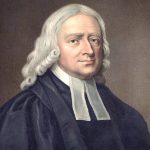Date of Birth: March 24, 1834
Zodiac Sign: Aries
Date of Death: September 23, 1902
Biography
John Wesley Powell was an American explorer, geologist, and ethnologist who is most famous for his pioneering exploration of the Colorado River and the Grand Canyon. Born in Mount Morris, New York, Powell had a fascination with nature and science from a young age. He pursued studies in natural history and geology, and served as a major in the Union Army during the Civil War, where he lost part of his right arm in the Battle of Shiloh. After the war, Powell became a professor of natural sciences at Illinois Wesleyan University and later at Illinois State Normal University. His most notable expedition began in 1869, when he led a small group of men down the uncharted Colorado River, a journey that covered nearly 1,000 miles through some of the most rugged and remote terrain in the United States. Despite numerous challenges, including treacherous rapids and scarce supplies, Powell’s expedition successfully completed the journey, providing valuable scientific data and detailed maps of the region. Powell’s contributions to science and exploration extended beyond his river expeditions. He served as the second director of the U.S. Geological Survey and helped establish the Bureau of Ethnology at the Smithsonian Institution, where he conducted significant research on Native American cultures. Powell was a strong advocate for the sustainable management of the American West’s natural resources, recognizing the importance of water conservation in the arid region long before it became a widespread concern.
5 Interesting Facts about John Wesley Powell
1. John Wesley Powell lost part of his right arm during the Battle of Shiloh in the Civil War but continued to pursue a career in exploration and science despite his disability.
2. Powell’s 1869 expedition down the Colorado River was the first recorded journey through the Grand Canyon.
3. He was instrumental in the establishment of the U.S. Geological Survey and served as its second director from 1881 to 1894.
4. Powell’s work in ethnology led to significant contributions to the understanding of Native American cultures, particularly through his establishment of the Bureau of Ethnology.
5. He was a vocal advocate for the sustainable management of the arid American West, emphasizing the need for water conservation long before it became a common environmental concern.
5 Most Interesting Quotes from John Wesley Powell
1. “We have an unknown distance yet to run, an unknown river to explore. What falls there are, we know not; what rocks beset the channel, we know not; what walls ride over the river, we know not. Ah, well! we may conjecture many things.”
2. “The wonders of the Grand Canyon cannot be adequately represented in symbols of speech, nor by speech itself.”
3. “The river rolls by majestic in its grandeur, flowing through a landscape of sublime beauty.”
4. “It is a region more difficult to traverse than the Alps or the Himalayas, but to me it is a land of fascination and joy.”
5. “You cannot see the Grand Canyon in one view, as if it were a changeless spectacle from which a curtain might be lifted.”
Highest Net Worth Achieved
John Wesley Powell did not achieve significant personal wealth from his explorations and scientific work. His contributions were largely in the realm of public service and scientific advancement rather than financial gain.
Children
John Wesley Powell did not have any children.
Relevant Links
1. [Biography on Britannica](https://www.britannica.com/biography/John-Wesley-Powell
3. [Powell’s 1869 Expedition on Smithsonian](https://www.si.edu/spotlight/john-wesley-powell
4. [John Wesley Powell’s Contributions to Geology](https://pubs.er.usgs.gov/publication/70202444

